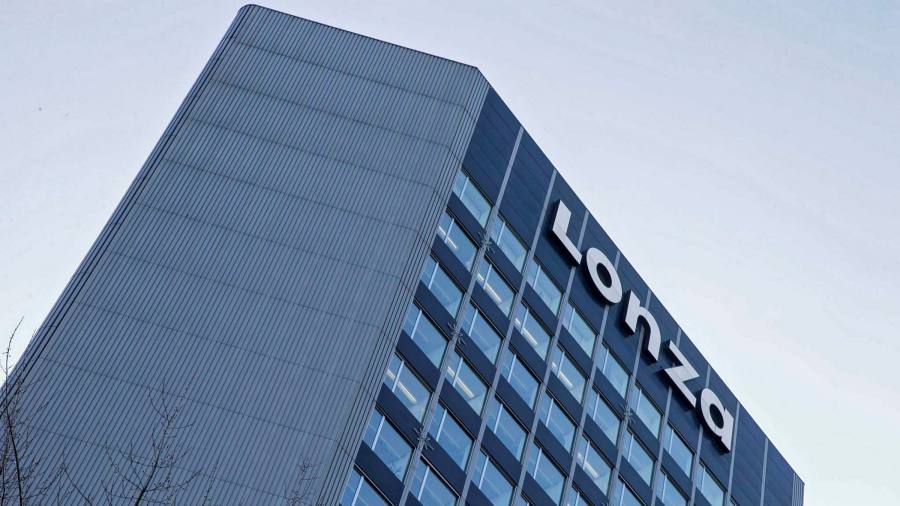[ad_1]
While vaccine pioneers scale the peaks of medical science to halt the pandemic, it is the contract drugmakers which support the expedition. Desiring a sharper focus on its role in healthcare, Switzerland’s Lonza is disposing of its speciality ingredients business. Private equity groups Bain and Cinven will buy the division for SFr4.2bn ($4.7bn), they announced on Tuesday.
Names such as Moderna have grabbed headlines with vaccine discoveries, but Lonza will have the job of mass manufacturing. It has responsibility for four of Moderna’s five vaccine production lines that will produce 500m doses annually. Links to solving the pandemic has excited investors. The Swiss group’s shares have only recently slipped back from all-time peaks.
Last year’s rally has led to the group’s pricey valuation. Its enterprise value is 25 times expected ebitda, up by half from recent years. Then again, valuations for peers Sartorius and Celltrion trade at close to 40 times expected ebitda.
What may have dragged back the multiple is its stolid speciality chemicals unit. Lonza perhaps thought it could make better use of the capital employed, which UBS estimates to be worth no less than SFr3.5bn.
Lonza’s speciality ingredients business should be a good fit for private equity. Its business lines, cleaning and disinfecting chemicals, have suffered competitive pressure. Yet these should also provide steady cash flow in a world obsessed with cleanliness. Bain and Cinven will pay 13 times ebitda. That is a decent price if only half Lonza’s current multiple. The division’s profits have not budged for many years. A similar business, Schülke, was sold by Air Liquide for 12 times last spring.

While the connection with Moderna’s vaccine seems exciting, actual proceeds from the contracts will only provide a small percentage of revenues. Lonza needs to reinvest these sale proceeds into more promising areas of growth, such as cell and gene therapies. Still in development, these new treatments offer potentially lucrative future revenues for those that can perfect their manufacture.Â
Revenues for what remains of Lonza should expand at an almost 10 per cent compound annual growth rate to 2025, according to consensus estimates. This deal looks good business for Lonza. Recycling the capital into high return areas is its next mountainous challenge.
Lex recommends the FT’s Due Diligence newsletter, a curated briefing on the world of mergers and acquisitions. Click here to sign up
[ad_2]
Source link






